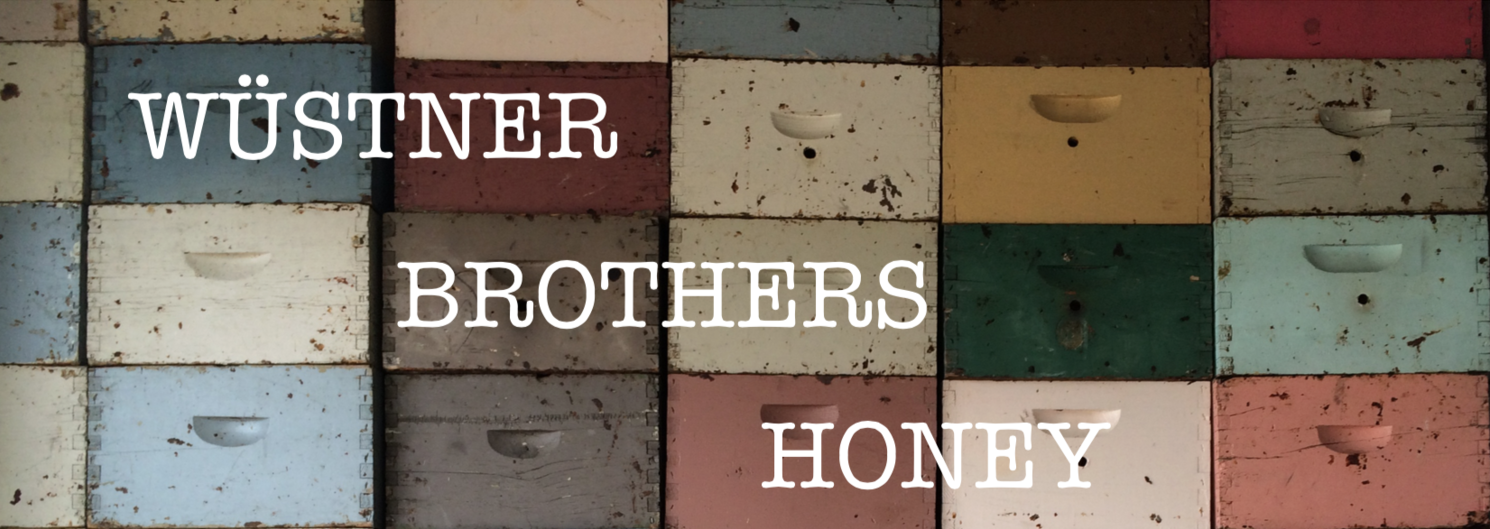Frequently Asked Questions
Does Wustner Brothers Honey offer wholesale pricing?
We do have limited availability for wholesale. If you have a business and are looking to carry our product, please contact our distributor, the Western Montana Growers Cooperative. Their website is https://www.wmgcoop.com/contact-us. If you are looking for wholesale pricing as an individual buyer please contact your local grocery store and request they purchase through the Western Montana Growers Cooperative.
How can I purchase Wustner Brothers Honey?
We offer our products through a number of local businesses listed on our website, http://www.wustnerbrothers.com/retail-locations.
Due to a huge increase in demand for our products we are taking a break from the farmers markets this year to focus on wholesale. We love the farmers market and it has helped us immensely in building our relationship with the community.
Can I buy directly from Wustner Brothers Honey for pick up or delivery?
We are busy working on our hives and our wholesale accounts so we are unable to provide this service.
What is Raw Honey?
In the United States there is no federal definition for "raw" honey, as a general rule raw honey is honey that has not been heated to the point of pasteurization. Therefore many honeys labeled as raw may have been heated or filtered prior to bottling. Each beekeeper is left to make their own decision about what they consider to be raw.
We at Wustner Brothers Honey strive to produce what we consider to be a truly raw honey. Our unheated and unfiltered honey is a truly raw product taken directly from our beehives poured into the bottle unprocessed and unaltered.
My Raw Honey Has Crystallized, What do I do?
Crystallization (or granulation) is a process which occurs naturally in unprocessed honey. It is perfectly fine to eat honey in it's crystallized state, but if you prefer a more liquid honey we suggest using one of the following methods:
1) Place your honey jar in a sunny window on a hot day and as the sunlight warms the honey it will return to a more liquid state.
2) Place your honey jar in a small pot of warm (not boiling) water and watch carefully until the honey begins to liquefy.
3) microwave at fifteen second intervals until desired softness is achieved
What is the shelf life of raw honey?
The honey will last indefinitely stored in a cool dark place with the lid tight on the jar. Adding moisture to honey will cause it to spoil.
Can I recycle Wustner Brothers Honey glass jars?
We are unable to provide this service at this time. The jars work well for reusing for dried and refrigerated foods. We greatly appreciate your efforts to reduce waste and reuse!
How do you keep bears from getting into your hives?
We diligently maintain solar-powered security fences in our apiaries in an effort to keep wildlife and our beehives coexisting peacefully. We have never used lethal force to keeps bears out of our hives. We love the wildlife and wild spaces that Montana provides us with, and running our business in a sustainable, responsible, and respectful manner is of the utmost importance to us.
Do you give tours?
We are unable to give tours at this time.
Do you sell comb honey, pollen, royal jelly or propolis?
We do not have comb honey to sell at this time. Comb honey is very labor intensive and therefore not very profitable to sell. We will post it on our online shop if we ever to decide to sell it again. Pollen, royal jelly and propolis are even more difficult to harvest so we save our energy for the honey harvest.
Do you sell hives, nuclear hives, bees and/or queens?
Our focus is on producing high quality honey so we do not sell our hives, nuclear hives, bees or queens.
Are you hiring? Can I apply to work for Wustner Brothers Honey?
We have a committed crew for 2024.
I've heard or read about the bees dying off, how can I help to save the bees?
As as beekeepers we are grateful that the public is becoming increasingly aware of the amazing services that pollinators provide to all of us. Supporting businesses and farmers who utilize sustainable and environmentally-responsible agricultural practices helps to keep insecticide-free forage plentiful for honeybees and native pollinators in your community. At home you can create a pollinator haven by keeping your own yard pesticide-free (bees LOVE dandelions!) and planting as many pollinator-friendly flowers as you can handle.
